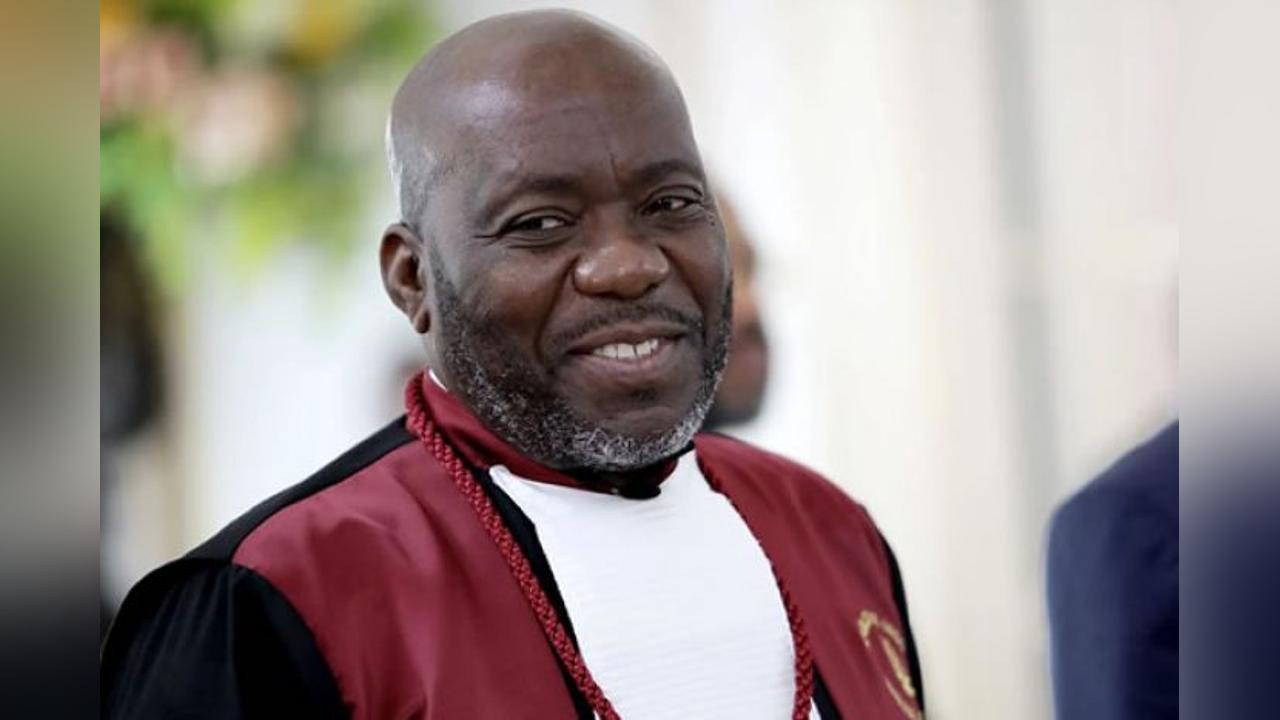Africa-Press – Angola. The investigation process into the public complaints against the presiding judge of the Supreme Court (TS) and the Superior Council of the Judiciary (CSMJ), Joel Leonardo, which is being carried out by the National Directorate of Investigation and Criminal Prosecution (DNIAP), an organ of the Attorney General’s Office (PGR), is now in the preparatory investigation phase.
The preparatory investigation is the phase of investigation and collection of evidence or formation of the corpus delicti, with the ultimate perspective of analyzing the essential indictment elements to substantiate or not the accusation.
At the PGR headquarters, the process has been going on for two years and this body has never made any official statement about the investigation, always claiming judicial secrecy.
Novo Jornal sought to find out what stage the investigation process was at and received the response that “it has already ended and is now in the preparatory investigation phase”.
A source from DNIAP told Novo Jornal that the investigation to gather evidence that would allow it to be turned into a criminal case has been concluded and the case is now in the investigation phase.
According to the DNIAP source, the process is no longer under investigation, since “investigations do not last for years.”
“If there is no evidence, the case is archived, but if there is, it is registered and proceeds,” he said.
Despite ensuring that the process is in preparatory investigation, the source did not agree to reveal the “brain” of the investigation, that is, whether or not there are strong indications of corruption, as guaranteed by the allegations made publicly in various media outlets and on social networks.
Interviewed by Novo Jornal, jurist Carlos Veiga explained that this means that the case is not dead and that it may have legs to move forward. It may, for example, even reach the indictment stage.
According to this jurist, the stage in which the process is found can also be understood as a “double-edged sword” that could serve to accuse the suspect or lead to the archiving of the process.
According to Carlos Veiga, the fact that the process is at this stage means that it is ongoing and that the accusations may or may not be proven.
Carlos Veiga argues that this does not mean that the accused, in this case the presiding judge of the Supreme Court, Joel Leonardo, committed the crimes of which he is accused in the charges.
The presiding judge of the TS began to be strongly accused of being involved in acts of corruption, nepotism and mismanagement of the body he heads at the end of 2022, which led the PGR, in March 2023, to carry out investigations at the headquarters of that supreme court.
In April of that year, Attorney General Hélder Pitta Gróz told the press that the investigation process was proceeding normally, although under judicial secrecy, stating that the PGR would make a statement soon, which never happened.
Before the PGR took a position on the allegations, in March 2023, the TS judges met in light of one of the institution’s organic statutes and demanded clarifications from the presiding judge about the corruption scandal and the allegations against him.
However, Joel Leonardo denied all public allegations to the judges, stating, before his peers, that he had the trust of the President of the Republic, João Loureço.
In August last year, Novo Jornal reported that the investigation process opened against the president of the TS could be archived due to insufficient evidence, according to the investigation report by experts from the PGR that was sent to the office of the Attorney General of the Republic, Hélder Pitta Gróz, for his evaluation and acknowledgment, in order to give him “the greatest possible legal certainty, in order to avoid mistakes or situations that could indicate disruption in the process”, as described by a source from this body.
However, jurist Carlos Veigas argues that it is easier for the PGR to state that the case is under judicial secrecy than to assume that it has been archived, and maintains that the preparatory investigation process may be lengthy, but that the PGR itself will then have to make a statement.
For More News And Analysis About Angola Follow Africa-Press






